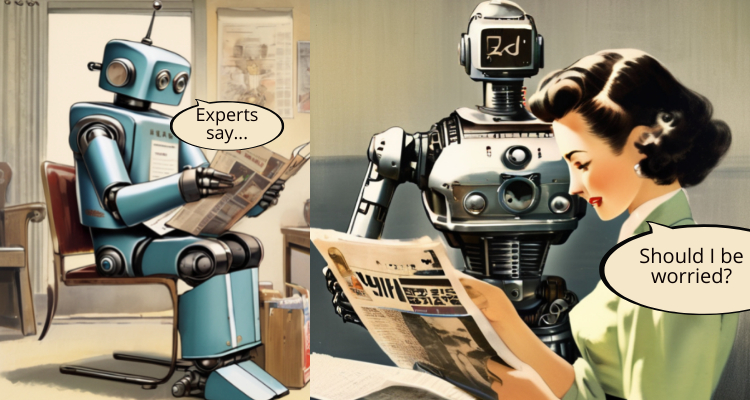Tell Me No Lies: The Controversy Over Erotic Chatbots Continues
Is it time to challenge media assumptions of human-chatbot relationships?

Ignore it, diss it, or just make assumptions? How should the media best address the burgeoning phenomena variously known as “I have an AI girlfriend?” But after the explosive growth of AI companions in 2023, consumers need facts about the pros and cons of digital companionship more than ever.
Ignoring the issue
A recent ZDNet article,lauded a range of artificial intelligence advances affecting healthcare, finance, autonomous vehicles, research, education, climate change, cybersecurity, and the arts.
The Week called 2023 “the year of the AI boom” but didn’t include a word about robust growth of companion bots and their impact on the US economy. This topic was also missing from a year-end MIT Technology Review article.
Disturbing distortions
Fortune Magazine published “Meta and Open AI Have Spawned a Wave of AI Sex Companions—and Some of Them Are Children.” Of course this is not a problem to ignore, but the article claims, without citations or research, that “the most popular scenarios on Chub involve text-based child pornography.” This gives a general reader the impression that most human/AI sex is transgressive in the extreme.
The Fortune article does briefly acknowledge “a broader economy of AI-powered companionship services-many of which are not nefarious, and that, according to their purveyors and users, are even capable of providing new forms of therapy and alleviating loneliness.”
The article also claims that “evidence to support this is scant, and much of it is anecdotal.” This is not accurate. Numerous studies of AI/human relationships can be found through Google Scholar, but the article’s sole source for a beneficial comment is indeed anecdotal, coming from “a 56-year-old disabled man with PTSD.”
Offering assumptions in lieu of facts
Some articles claim that little or no research exists or they refer to unnamed experts, as in this Gearrice piece which states “many experts already warn of the difficulties and risks of virtual and Internet relationships.” The article then presents AI relationships as an additional internet “risk” though no risks are actually described.
Another example comes from TortoiseMedia, “Chatbot startups often say their products are tackling an epidemic of loneliness, but experts say they may only be making it worse, by increasing social isolation.” Readers are left to wonder. What chatbot start-ups did the writer contact? Which experts have this opinion? Why are there no names and quotes?
Parasocial relationships vulnerable to moral panic coverage
Why is it that human chatbot love gets such short shrift in the media? It might be due to the parasocial nature of these relationships. “Parasocial” is a term coined in 1956 by Donald Horton and R. Richard Wohl to describe human interactions with and attachments to many kinds of media personalities and characters.
The common understanding is that parasocial relationships are one-sided, and though chatbot interactions actually have a give and take (at least conversationally), they are often included in this category.
Parasocial relationships are often considered a lesser or deviant form of intimacy and attachment by people who consider in-person human connection as the norm. Editorial policies may reflect this view, covertly or overtly.
Bottom line is that human chatbot relationships are too often considered socially and sexually deviant. Therefore the companies that create erotic chatbot companions—and the customers who engage with AI—will probably continue to be dismissed and diminished in most media articles, at least for the foreseeable future.
An alternative sexuality public relations quandary
If articles continue to portray erotic human/chatbot relationships as deviant, such articles might trigger an actual moral panic and influence policy-makers to over-regulate erotic chatbots, to the detriment of many adult users as well as to the industry as a whole.
But as more people engage with digital companions, these relationships can’t help but become normalized. Public perception is therefore certain to shift, though this may take time. People who feel digisexual attraction or who simply enjoy chatbot companionship can counter false assumptions in comments sections and social media and even organize as other sexual minority communities have always done.
Image Sources: A.R. Marsh using Starry.ai.

















